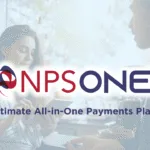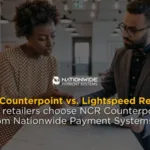Additional Insights on Payment Gateways
Evolution of Payment Gateways
Payment gateways have come a long way from their inception. In the early days of online shopping, these were basic tools that primarily handled credit card payments. Over time, advancements in technology have enabled gateways to integrate with digital wallets, cryptocurrency payments, and biometric authentication methods, offering customers more options and greater security.
What is a Payment Gateway?
A payment gateway is essentially a software platform that securely processes payments made on a website. In simple terms, think of it as a digital cashier that not only authorizes payments but also ensures that sensitive customer data — like credit card numbers — is transmitted securely between the customer, the merchant, and the banks involved. In this way, it acts as the middleman that makes online payments both safe and seamless.
Why Do Businesses Need a Payment Gateway?
For any online merchant, a payment gateway is more than a convenience—it’s a necessity. To begin with, payment gateways provide secure payment processing, protecting both businesses and their customers from potential data breaches. Moreover, they offer fraud prevention tools and encryption to ensure sensitive customer data is handled safely.
In addition to security, they speed up transactions. Fast transaction approvals, along with support for multiple payment methods (like credit cards, digital wallets, and ACH), mean businesses can cater to a wide range of customer preferences. Not only that, but they also provide detailed reporting for better business management, along with customer payment notifications to enhance communication.
Put simply, without a payment gateway, merchants cannot accept credit card payments online in a secure and compliant manner.
How Does a Payment Gateway Work?
Let’s break it down step-by-step:
Step-by-Step Process of a Payment Gateway Transaction
- Customer Makes a Purchase
First, the customer visits a merchant’s website. After selecting their desired product or service, they proceed to checkout. - Payment Information is Entered
Next, the customer enters their credit or debit card details on a secure payment page. This page might be hosted by the merchant (if PCI compliant) or, for additional security, provided directly by this tool. - Data is Encrypted
Once the payment information is submitted, the payment gateway encrypts the data to protect it during transmission. - Transaction is Sent for Authorization
Following this, the encrypted payment details travel through the gateway to the acquiring bank (the merchant’s bank). The acquiring bank then sends the details to the relevant card networks (such as Visa, Mastercard, or AMEX). - Card Issuer Responds
Next, the card issuer (the customer’s bank) evaluates the transaction. Based on factors like available funds, card status, and fraud checks, the transaction is either approved or declined. - Approval or Decline Sent Back
The response is then sent back through the card networks to the acquiring bank, and from there, it moves through the gateway to the merchant. - Customer is Notified
Finally, the customer is informed via the website whether their payment was successful or declined.
Why Payment Gateways Matter for Online Businesses
Beyond facilitating transactions, they play a crucial role in protecting both merchants and customers. For instance, they incorporate advanced security features like encryption, fraud detection tools, tokenization, and ensure compliance with PCI DSS standards. Furthermore, they provide detailed reporting and analytics, making it easier for businesses to monitor transactions and identify trends.
Benefits of Using a Payment Gateway from Nationwide Payment Systems
When partnering with Nationwide Payment Systems, businesses gain access to numerous benefits, including:
- A variety of payment methods to meet customer needs
- Secure and compliant payment processing solutions
- Customizable reporting dashboards for better insights
- 24/7 customer support for uninterrupted service
- Robust fraud protection tools
- Seamless integration with websites
- Support for recurring payments and subscriptions
Additionally, Nationwide Payment Systems ensures compatibility by matching your business with the ideal gateway based on your website software and desired features.
Ready to Upgrade Your Payment Processing?
Contact Nationwide Payment Systems today and discover how we can help your business process payments faster, safer, and smarter.
CLICK HERE TO FIND MORE ABOUT OUR PROGRAMS
FAQ: Frequently Asked Questions
What is a payment gateway and why do I need one for my business?
A payment gateway is a secure software platform that processes online payments by transmitting customer payment information between your website, banks, and payment networks like Visa or Mastercard. If you sell products or services online, you need a payment gateway to securely process credit card and other digital payments.
How long does it take for a payment gateway to process a transaction?
The entire process of an online payment transaction through a payment gateway usually takes only 2-3 seconds. While it may seem complex, these steps happen instantly behind the scenes — from collecting customer payment data to getting authorization from the bank.
Is a payment gateway secure for my customers' information?
Yes, a good payment gateway is highly secure. It uses encryption, tokenization, and must comply with PCI DSS (Payment Card Industry Data Security Standard) to ensure that sensitive data like credit card numbers are transmitted securely and protected from fraud or hacking attempts.
Can a payment gateway support multiple payment methods besides credit cards?
Absolutely! Modern payment gateways, like those provided by Nationwide Payment Systems, support a variety of payment methods including:
- Credit & Debit Cards
- ACH (Bank Transfers)
- Digital Wallets (Apple Pay, Google Pay)
- Recurring Billing & Subscriptions
- Alternative Payment Methods
This flexibility helps you serve more customers globally.
How do I choose the right payment gateway for my business?
When choosing a payment gateway, consider:
- Security & PCI Compliance
- Ease of Integration with your website
- Transaction fees & pricing structure
- Reporting & Analytics Tools
- Supported Payment Methods
- Customer Support
Partnering with an experienced provider like Nationwide Payment Systems ensures you get both advanced technology and personalized support for your payment processing needs.







